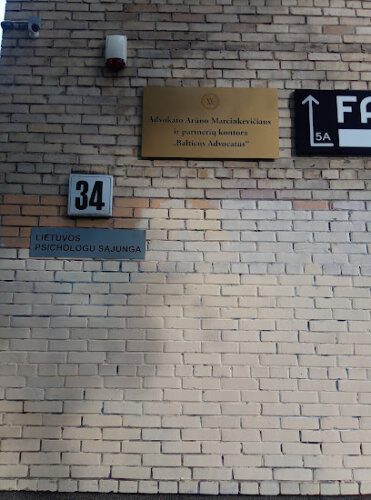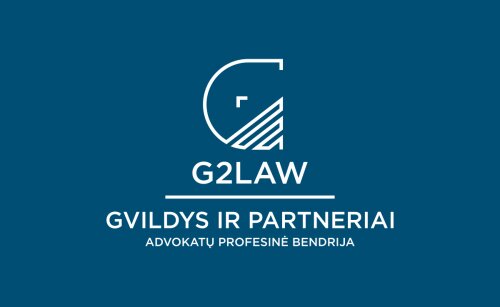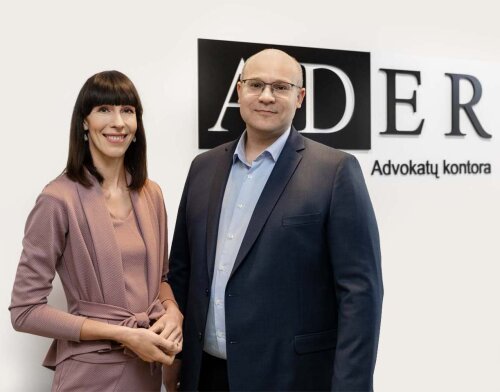Best Faith-Based Law Lawyers in Republic of Lithuania
Share your needs with us, get contacted by law firms.
Free. Takes 2 min.
Or refine your search by selecting a city:
List of the best lawyers in Republic of Lithuania


About Faith-Based Law in Republic of Lithuania
Faith-Based Law in the Republic of Lithuania encompasses a collection of legal frameworks that recognize and regulate religious practices, beliefs, and institutions within the country. It primarily addresses issues such as freedom of religion, the operations of religious organizations, and the intersection of religious laws with the secular Lithuanian legal system. While Lithuania is predominantly Roman Catholic, it is also home to various other religious communities, all of which are subject to national laws that ensure the freedom of religious practice, as outlined in the Constitution of Lithuania.
Why You May Need a Lawyer
Individuals may require legal assistance in Faith-Based Law under several circumstances:
- Conflicts between religious beliefs and national laws that may affect personal rights or practices.
- Navigating the registration and recognition process for new religious organizations.
- Addressing issues of employment discrimination based on religious beliefs.
- Resolving conflicts related to religious inheritance laws and practices.
- Assistance in matters of marriage, divorce, and custody where religious laws might have influence.
Local Laws Overview
In Lithuania, the legal framework surrounding Faith-Based Law is shaped by several key points:
- The Constitution: Establishes freedom of religion and ensures the separation of church and state.
- The Law on Religious Communities and Associations: Governs the establishment, registration, and operation of religious organizations.
- Human Rights Laws: Protect against discrimination based on religion in various contexts, including employment and education.
- Family Law: While primarily secular, can interact with religious customs in regards to marriage and divorce.
Frequently Asked Questions
1. What is required for a religious community to be legally recognized in Lithuania?
Religious communities must register with the Ministry of Justice to be legally recognized, demonstrating that they have at least 15 adult members and a registered place of worship.
2. Are there any restrictions on religious practice in Lithuania?
While religious freedom is protected, practices are subject to public order, health, and moral considerations, and must comply with national law.
3. How does Lithuania handle religious holidays in terms of employment law?
Employees are allowed to observe significant religious holidays. Employers must accommodate these requests unless it poses an undue burden.
4. Can religious organizations own property in Lithuania?
Yes, registered religious organizations can own, buy, or sell property in accordance with national laws governing nonprofit entities.
5. What is the role of faith-based law in family disputes?
Religious considerations can be involved in family law matters such as marriage or custody, particularly when both parties follow the same faith.
6. How does Lithuania address religious discrimination?
Discrimination based on religion is prohibited by the Law on Equal Treatment, and violations can be contested in courts.
7. Are religious leaders required to comply with national tax laws?
Yes, all religious entities and their leaders must comply with tax laws, although certain exemptions exist for registered religious organizations.
8. How are interfaith marriages handled legally in Lithuania?
Interfaith marriages are legal but must comply with the secular registration process, and individual religious customs must not conflict with national law.
9. Can religious practices influence public education in Lithuania?
Public education is primarily secular, but students may receive religious education with parental consent, respecting the freedom of belief.
10. What should someone do if they experience religious persecution or discrimination?
They should report the incident to the Equal Opportunities Ombudsperson and may seek legal counsel to pursue further civil actions.
Additional Resources
The following resources may be helpful for individuals seeking guidance on Faith-Based Law in Lithuania:
- Ministry of Justice of Lithuania: Provides information on the registration and regulation of religious communities.
- Equal Opportunities Ombudsperson: A government body addressing discrimination concerns, including religious discrimination.
- Lithuanian Bishops' Conference: Offers guidance and resources for the Catholic community on religious matters.
- Vilnius University Faculty of Law: Provides educational resources and may offer legal advice through legal clinics.
Next Steps
If you find yourself needing legal assistance in Faith-Based Law, consider the following steps:
- Identify the specific faith-based legal issue you are facing.
- Gather all relevant documentation and facts related to your situation.
- Consult with a legal professional who specializes in Faith-Based Law to understand your rights and options.
- Reach out to local or national organizations dedicated to supporting religious freedom and rights for additional guidance and support.
Lawzana helps you find the best lawyers and law firms in Republic of Lithuania through a curated and pre-screened list of qualified legal professionals. Our platform offers rankings and detailed profiles of attorneys and law firms, allowing you to compare based on practice areas, including Faith-Based Law, experience, and client feedback.
Each profile includes a description of the firm's areas of practice, client reviews, team members and partners, year of establishment, spoken languages, office locations, contact information, social media presence, and any published articles or resources. Most firms on our platform speak English and are experienced in both local and international legal matters.
Get a quote from top-rated law firms in Republic of Lithuania — quickly, securely, and without unnecessary hassle.
Disclaimer:
The information provided on this page is for general informational purposes only and does not constitute legal advice. While we strive to ensure the accuracy and relevance of the content, legal information may change over time, and interpretations of the law can vary. You should always consult with a qualified legal professional for advice specific to your situation.
We disclaim all liability for actions taken or not taken based on the content of this page. If you believe any information is incorrect or outdated, please contact us, and we will review and update it where appropriate.
Browse faith-based law law firms by city in Republic of Lithuania
Refine your search by selecting a city.












